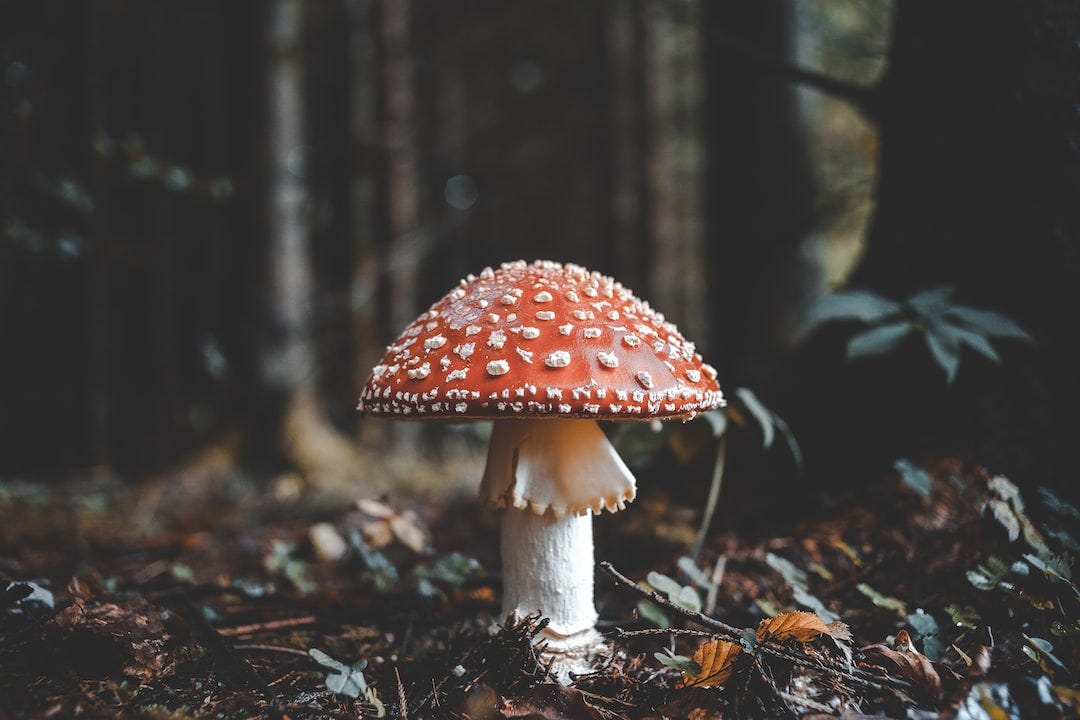Psilocybin and OCD
If you’re anything like me, the mere mention of the term “Obsessive-Compulsive Disorder” (OCD) probably brings to mind images of hyper-organized workspaces, an unyielding urge to tap a certain number of times or possibly a crippling fear of germs. But my friends, the reality of living with OCD isn’t just about quirky eccentricities. It’s complex and debilitating, often landing you in a relentless loop of intrusive thoughts and repetitive rituals. How about we explore the possibility of a new treatment, one that is as intriguing as it is promising? Say hello to Psilocybin is a naturally occurring psychedelic compound found in certain species of mushrooms..
“I do not suffer from insanity, I enjoy every minute of it.” – Edgar Allan Poe
Obsessive-Compulsive Disorder is no laughing matter, but a little levity never hurts, right? Especially when we’re dealing with a subject that’s as serious and potentially overwhelming as mental health. So, let’s put on our metaphorical lab coats, pull out the microscopes, and delve into the world of Psilocybin and its potential role in treating OCD.
Psilocybin, the active compound found in certain species of mushrooms, has gained attention in recent years for its potential therapeutic effects on various mental health conditions, including obsessive-compulsive disorder (OCD). While research on the use of psilocybin for OCD treatment is still in its early stages, preliminary findings suggest that it may hold promise as a new treatment option for individuals with this debilitating condition.
Now, you may be curious, just as I was: how does a hallucinogenic substance associated with psychedelic trips fit into treating a mental health condition like OCD? Well, it’s less about psychedelic tapestries and more about brain science.
Research conducted by Johns Hopkins University and the University of Arizona has shown psilocybin’s ability to produce profound changes in consciousness and perception. They tentatively suggest that these changes can help ‘reset’ certain parts of the brain—like hitting the refresh button on a sluggish, overworked computer. For those struggling with the unending loop of obsession and compulsion that is OCD, such a reset could offer profound relief.
Let me step back for a moment because, believe me, I can hear your skeptical squint all the way over here. Yes, we are talking about a psychedelic substance, and no, we’re not suggesting clients wander in a mystical forest unsupervised. Responsible use—under controlled, therapeutic settings—is crucial. Harnessing the potential power of psilocybin for OCD treatment will come hand in hand with carefully structured therapy sessions and professional oversight.
“Psilocybin-assisted therapy is not about the drug; it’s about the therapeutic process that the drug facilitates.” – Dr. Michael Mithoefer, psychiatrist and leading expert on psychedelic-assisted therapies.
The Current Status of Research
As of today, psilocybin research for OCD treatment is still in its infancy. However, the early-stage results are undeniably intriguing.
A small 2006 study conducted at the University of Arizona observed that single, moderate doses of psilocybin reduced participants’ OCD symptoms. It is worth noting that these participants were all categorised as having severe OCD and had not responded to traditional therapies. While the sample size of the study was small—only nine individuals—it offered a noteworthy glimpse into the potential positive impact of psilocybin on OCD symptoms.
Keep in mind: The small sample size and early nature of this study warrant a dose of healthy skepticism. As we often say in science, correlation does not imply causation, and more research is urgently needed.
That’s just a taste of the possibilities. Psilocybin is by no means a magical cure-all, and it’s certainly not without risks. It’s simply a legitimate generation of curiosity—a curio from nature’s medicine cabinet that may just open the door to a new understanding and methodology of OCD treatment. One thing is clear: we all need to keep our minds open, and keep the conversation and research going.



